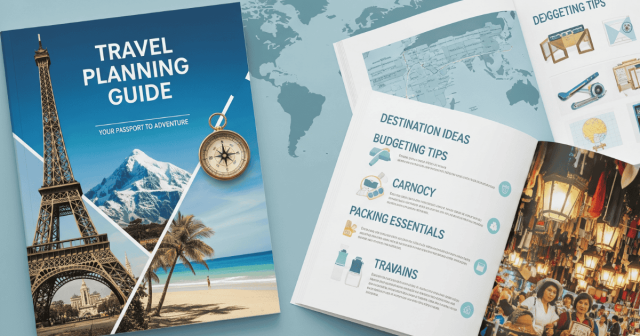Planning a trip can feel overwhelming. Between booking flights, finding accommodations, creating itineraries, and managing budgets, many travelers find themselves stressed before they even leave home. But with the right approach and tools, travel planning becomes an exciting part of your journey rather than a burden.
This comprehensive travel planning guide will walk you through every step of organizing your perfect trip. Whether you’re planning a weekend getaway or a month-long adventure, you’ll learn how to create efficient systems, avoid common pitfalls, and maximize both your time and budget. By the end of this guide, you’ll have a clear roadmap for turning any travel dream into reality.
The key to successful trip planning lies in breaking down the process into manageable steps. Instead of trying to handle everything at once, we’ll show you how to tackle each element systematically, ensuring nothing gets overlooked while keeping stress levels low.
How to Plan a Trip: The Foundation Phase
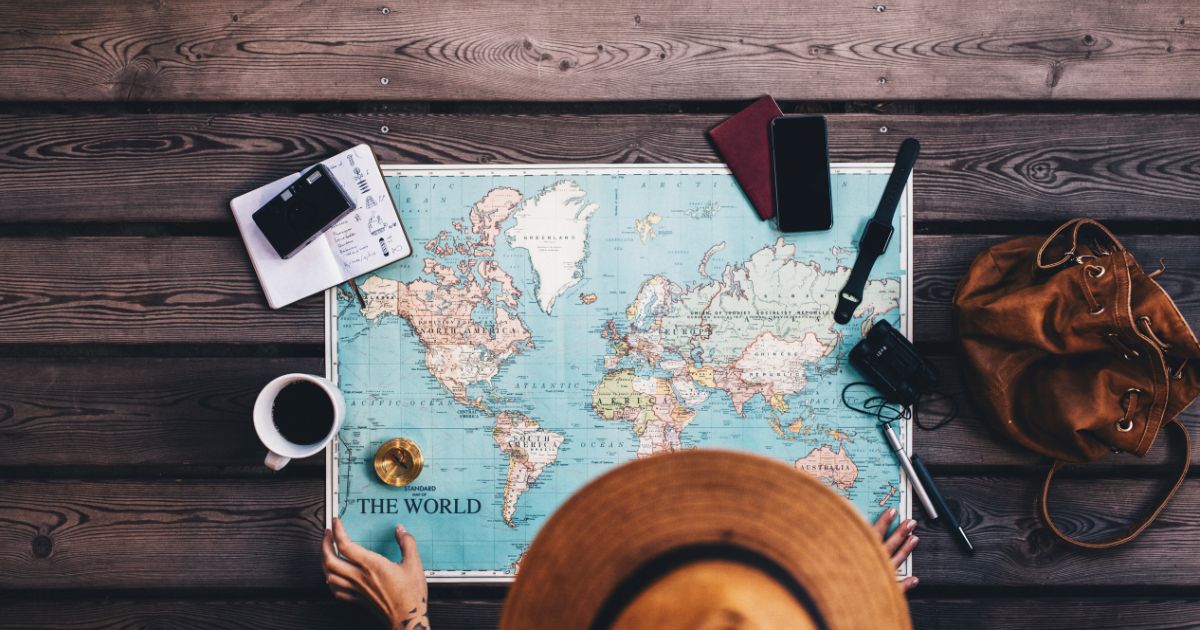
Every great trip starts with a solid foundation. Before diving into specific bookings or detailed itineraries, you need to establish the core elements that will guide all your subsequent decisions.
Define Your Travel Goals
Start by asking yourself what you want to achieve with this trip. Are you seeking relaxation on a beach, cultural immersion in a new city, or an adrenaline-filled adventure? Your travel goals will influence every decision from destination selection to activity planning.
Consider factors like the type of experiences you want, whether you prefer structured or flexible schedules, and how much time you want to spend moving between locations versus staying put. Solo travelers might prioritize different goals than families or couples, so factor in your travel companions’ preferences as well.
Set Your Budget Parameters
Establishing a realistic budget early prevents disappointment and helps narrow down your options. Break your budget into categories: transportation, accommodation, food, activities, shopping, and emergency funds. A common rule of thumb allocates 40% to accommodation and transportation, 30% to food and drinks, 20% to activities and attractions, and 10% to unexpected expenses.
Research the cost of living in your potential destinations to ensure your budget aligns with reality. Budget travel strategies can help stretch your dollars further, but be honest about what level of comfort you need to enjoy your trip.
Choose Your Destination and Dates
Your destination choice should balance your interests, budget, and time constraints. Consider factors like weather patterns, local events, tourist seasons, and visa requirements. Research multiple options and create a shortlist before making your final decision.
Timing can significantly impact your travel experience and costs. Shoulder seasons often offer the best balance of good weather, fewer crowds, and reasonable prices. Use flexible date searches when looking at flights to identify the most economical travel windows.
Research and Planning Phase
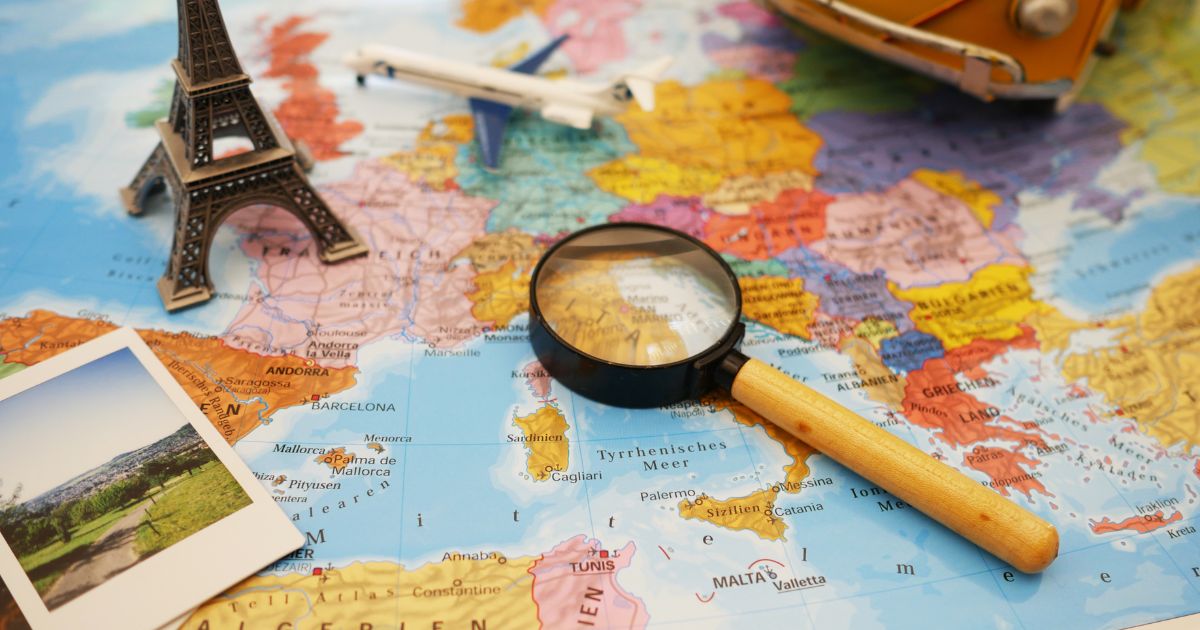
Once you’ve established your foundation, it’s time to dive deeper into the specifics of your chosen destination and start building your travel framework.
Destination Research
Thorough destination research enhances your travel experience and helps you avoid common tourist mistakes. Study the local culture, customs, and etiquette to show respect and avoid misunderstandings. Learn about local laws, especially those that might be different from your home country.
Research transportation options within your destination, including public transit systems, car rental requirements, and ride-sharing availability. Understanding how to get around efficiently saves time and money while reducing stress.
Identify must-see attractions, but also look for hidden gems and local favorites that might not appear in mainstream guidebooks. Food scene research is particularly important—knowing where locals eat and what dishes to try can be one of your most memorable travel experiences.
Create Your Travel Itinerary Guide
A well-structured travel itinerary strikes a balance between having a plan and maintaining flexibility. Start by mapping out your must-do activities and must-see locations, then organize them geographically and chronologically to minimize travel time between places.
Build in buffer time for unexpected discoveries, rest, and dealing with potential delays. Over-scheduling is one of the most common trip planning mistakes that leads to exhaustion and disappointment.
Consider creating a loose daily structure rather than minute-by-minute schedules. For example, plan morning activities in one area of the city, afternoon activities in another, and leave evenings flexible for spontaneous dining or entertainment choices.
Travel Planning Checklist Creation
Develop a comprehensive travel planning checklist that covers everything from initial research to post-trip tasks. Your checklist should include visa and passport requirements, vaccination needs, travel insurance research, and booking deadlines.
Create separate checklists for different timeframes: tasks to complete 3-6 months before travel, 1-3 months before, 2-4 weeks before, one week before, and day-of-travel items. This prevents last-minute rushes and ensures nothing important gets forgotten.
Booking and Reservations
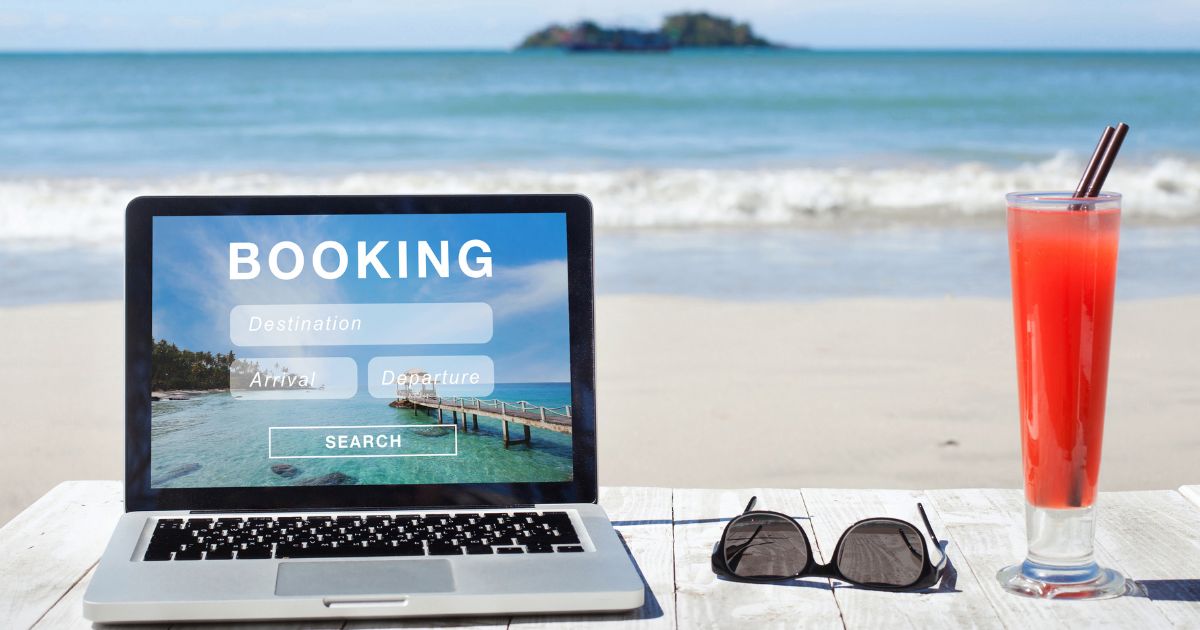
With your research complete and itinerary outlined, you can start making concrete bookings. The order and timing of these bookings can impact both your costs and options.
Flight Booking Strategies
Book flights first, as they often represent your largest expense and have the least flexibility. Use comparison sites to identify the best deals, but always check airline websites directly before booking, as they sometimes offer exclusive deals or better terms.
Consider factors beyond price, including baggage allowances, seat selection fees, meal options, and airline reputation for on-time performance. For international travel, pay attention to layover times and airport locations to avoid unnecessarily stressful connections.
Be aware of seasonal price fluctuations and book domestic flights 1-2 months in advance, international flights 2-3 months in advance for optimal pricing. Tuesday afternoons often offer the best deals as airlines release sales and competitors match prices.
Hotel Booking Tips and Accommodation Planning
Accommodation choices significantly impact your travel experience and budget. Beyond hotels, consider vacation rentals, hostels, guesthouses, or unique options like farm stays or boutique properties.
Location matters more than amenities for most trips. Staying in well-connected areas near public transportation or within walking distance of major attractions saves time and money on daily transportation costs.
Read recent reviews carefully, paying attention to comments about cleanliness, noise levels, staff helpfulness, and accuracy of photos. Book accommodations with flexible cancellation policies when possible, as this provides options if you find better deals or need to change plans.
Transportation and Activity Bookings
Research and book major transportation needs like car rentals, train tickets, or domestic flights early, especially during peak travel seasons. Many popular attractions require advance reservations, so identify these early in your planning process.
Consider purchasing city tourist cards or attraction passes if you plan to visit multiple paid sites. These often include public transportation and can provide significant savings, but calculate the actual value based on your planned activities.
Best Travel Apps and Digital Tools
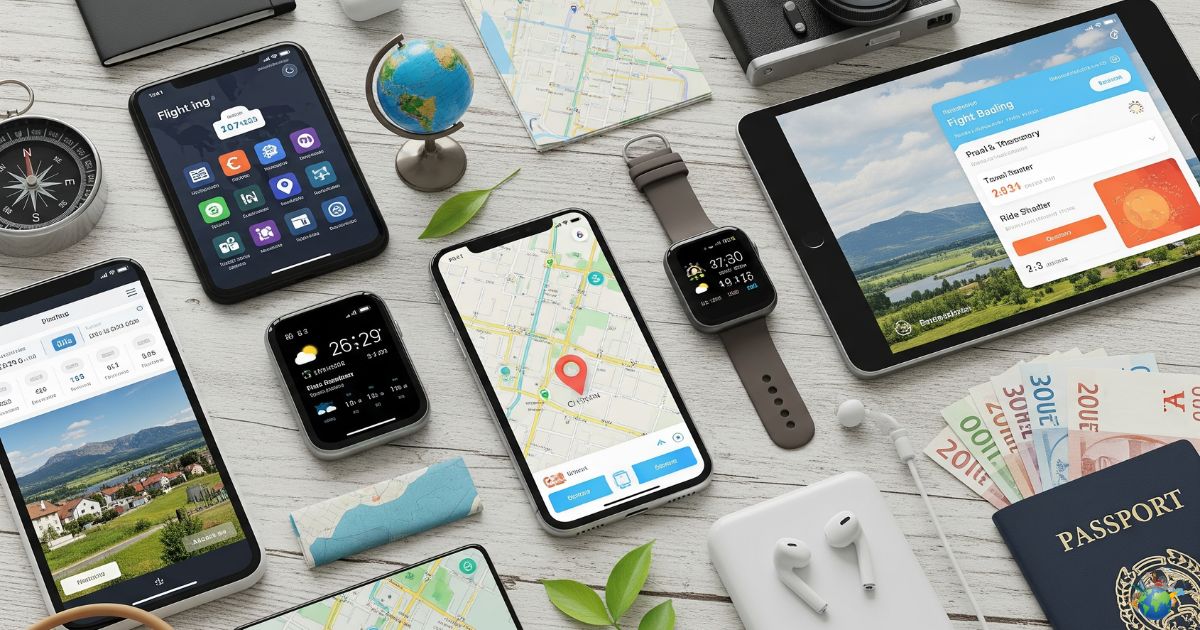
Modern travel planning benefits enormously from digital tools that streamline organization, booking, and on-trip navigation.
Planning and Organization Apps
Use comprehensive travel planning apps like TripIt to organize all your bookings in one place. These apps can automatically import booking confirmations from your email and create master itineraries accessible offline.
Google Trips and similar apps help research destinations, find attractions, and create day-by-day plans. Many offer offline functionality, which proves invaluable when you have limited internet access while traveling.
Budget tracking apps help monitor spending in real-time, converting currencies and categorizing expenses to keep you on track financially throughout your trip.
Booking and Comparison Tools
Flight comparison tools like Skyscanner, Kayak, and Google Flights help identify the best deals and track price changes. Set up price alerts for your preferred routes to catch deals as they appear.
Accommodation comparison sites like Booking.com, Hotels.com, and Airbnb each have different strengths and occasionally exclusive deals. Cross-reference prices across multiple platforms before booking.
Restaurant reservation apps like OpenTable or local equivalents help secure tables at popular restaurants, especially important in food-focused destinations.
Navigation and Translation Apps
Download offline maps before traveling to avoid international data charges while navigating. Google Maps, Maps.me, and Citymapper offer excellent offline functionality for different types of travel.
Translation apps like Google Translate can be lifesavers in countries where you don’t speak the language. Download language packs for offline use and learn how to use the camera translation feature for signs and menus.
Packing and Preparation
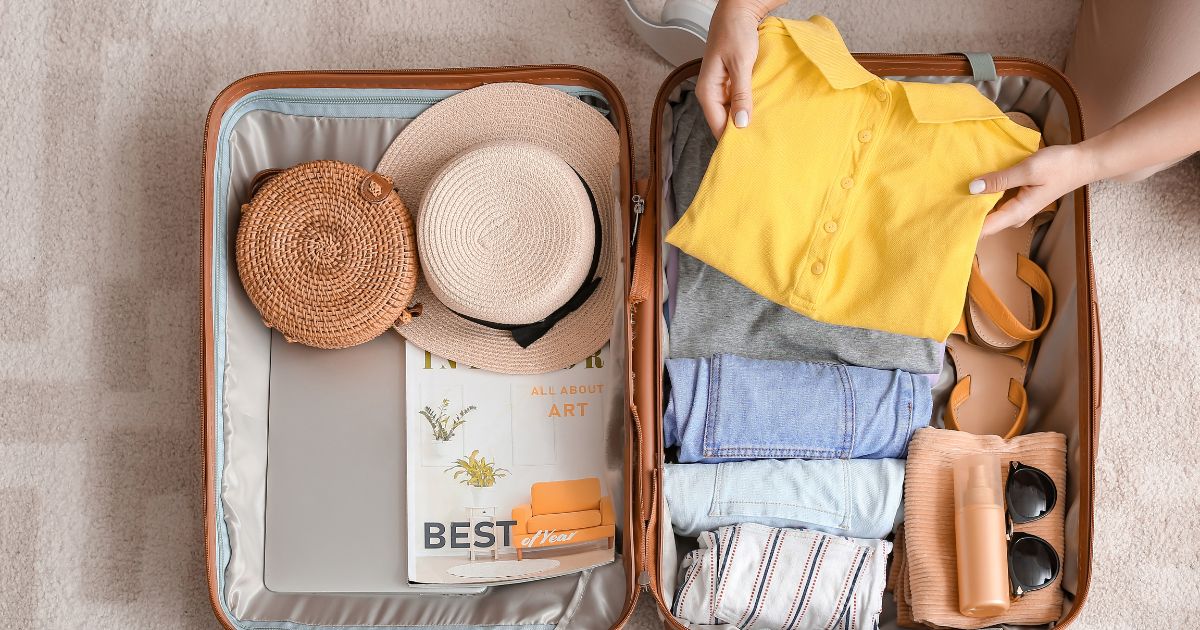
Smart packing and thorough preparation make your actual travel experience smoother and more enjoyable.
Essential Packing List Components
Create a master packing list that you can customize for different types of trips. Include categories for clothing, toiletries, electronics, documents, medications, and destination-specific items.
Pack one complete outfit in your carry-on bag, along with essential medications and valuables. This protects you if checked luggage gets delayed or lost.
Research baggage restrictions for all your flights, including weight limits, size restrictions, and prohibited items. International flights often have different rules from domestic ones.
Travel Insurance Considerations
Travel insurance protects against unexpected events that could derail your trip or create financial hardship. Compare policies carefully, as coverage varies significantly between providers and plan types.
Consider factors like medical coverage limits, evacuation benefits, trip cancellation reasons, adventure activity coverage, and pre-existing condition clauses. Annual policies may offer better value if you travel frequently.
Purchase travel insurance soon after making your first trip payment to maximize coverage for trip cancellation benefits. Some credit cards offer travel insurance, but read the terms carefully as coverage may be limited.
Documentation and Legal Preparations
Ensure your passport has at least six months of remaining validity for international travel. Many countries require this buffer even for short visits.
Research visa requirements well in advance, as processing times can be lengthy. Some countries offer visa-on-arrival or electronic visas, while others require applications weeks or months in advance.
Make copies of important documents and store them separately from originals. Digital copies stored in cloud services provide backup access if physical documents are lost or stolen.
Money Management and Budgeting
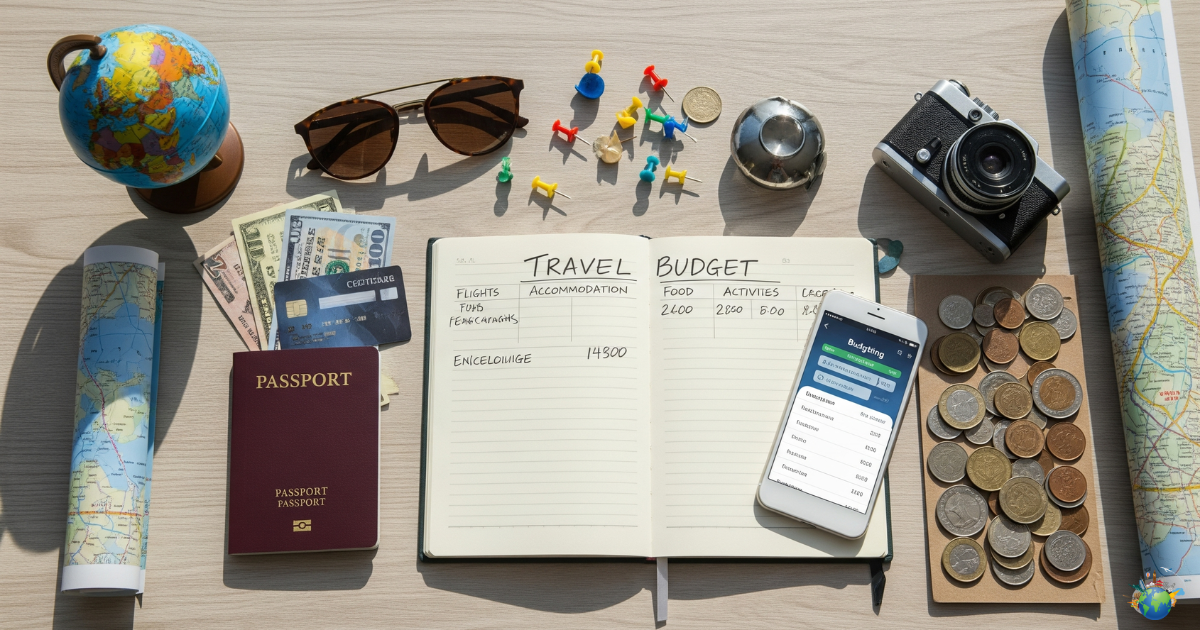
Effective financial planning and money management can make or break a travel experience. Poor planning leads to overspending, while good systems help maximize your travel value.
Pre-Trip Financial Planning
Notify your bank and credit card companies about your travel plans to prevent cards from being flagged for suspicious activity. Understand foreign transaction fees and ATM charges, as these can add up quickly.
Research the best methods for accessing money in your destination. Some countries favor cash transactions, while others are nearly cashless. Understanding local payment preferences helps you prepare appropriately.
Set up a separate travel checking account to help track spending and avoid mixing travel expenses with regular finances. Load this account with your travel budget plus a buffer for emergencies.
Currency and Payment Strategies
Research exchange rates and identify the best methods for currency conversion. Airport exchange services typically offer poor rates, while bank ATMs often provide competitive rates with reasonable fees.
Consider getting a small amount of local currency before departure to cover immediate needs like transportation from the airport. The rest can be obtained locally as needed.
Understand tipping customs in your destination, as these vary significantly between countries and can impact your daily budget. Some cultures consider tipping offensive, while others expect generous tips for good service.
Solo Travel Planning Considerations

Solo travel requires additional planning considerations around safety, social interaction, and logistics, but offers unique freedoms and opportunities for personal growth.
Safety and Communication Planning
Research safety conditions in your destination and identify areas or situations to avoid. Register with your embassy if traveling to areas with potential political instability or natural disaster risks.
Establish communication schedules with family or friends at home, sharing your itinerary and checking in regularly. Consider purchasing an international phone plan or a local SIM card for reliable communication access.
Plan social opportunities if you want to meet other travelers or locals. Hostels, group tours, classes, and social apps designed for travelers can provide social interaction and shared experiences.
Flexibility and Spontaneity Balance
Solo travel allows maximum flexibility to change plans spontaneously, but some advance planning provides security and ensures you don’t miss important experiences.
Book the first few nights of accommodation in advance to provide a secure base upon arrival, then maintain flexibility for the rest of your trip based on discoveries and recommendations.
Research group activities or tours that interest you, as these can provide structured experiences and opportunities to meet fellow travelers while exploring your destination.
Trip Planning Tips for Different Travel Styles

Different types of travelers require adjusted planning approaches to maximize satisfaction and minimize stress.
Family Travel Considerations
Family travel requires additional planning around child-friendly accommodations, activities, and logistics. Research destinations for safety, healthcare quality, and family-friendly infrastructure.
Plan shorter travel days with more frequent stops to accommodate children’s needs and attention spans. Build flexibility into itineraries for rest time, snack breaks, and unexpected challenges.
Research family discounts for attractions, transportation, and accommodations. Many destinations offer family passes or children’s pricing that can significantly reduce costs.
Adventure and Activity-Focused Travel
Adventure travel requires specialized planning around equipment, physical preparation, weather conditions, and safety considerations. Research activity providers thoroughly, checking safety records and equipment quality.
Consider travel insurance with adventure activity coverage, as standard policies often exclude high-risk activities. Understand what activities are covered and any restrictions or requirements.
Plan physical preparation time before departure, especially for activities requiring specific fitness levels or skills. This preparation enhances safety and enjoyment while reducing injury risk.
Business and Work Travel
Business travel benefits from streamlined planning systems that can be replicated for frequent trips. Develop templates for common destinations and trip types to speed up planning processes.
Prioritize convenience over cost savings for business travel, focusing on reliable transportation, well-located accommodations, and services that support productivity.
Understand company travel policies and reimbursement procedures before booking. Some companies have preferred vendors or specific requirements that affect booking choices.
Your Journey Starts with a Plan
Effective travel planning transforms potentially stressful experiences into smooth, enjoyable adventures. The time invested in thorough planning pays dividends throughout your trip, allowing you to focus on experiencing and enjoying your destination rather than solving logistical problems.
Remember that the best travel plan balances structure with flexibility. Having a framework provides security and ensures you don’t miss important experiences, while maintaining openness to spontaneous discoveries creates space for the unexpected moments that often become the most treasured travel memories.
Start implementing these trip planning tips for your next adventure. Begin with the foundation elements—defining your goals, setting your budget, and choosing your destination. Then work systematically through the research, booking, and preparation phases. Most importantly, enjoy the planning process itself, as anticipation and preparation are integral parts of any great travel experience.
For travelers who want to make a positive impact while exploring the world, use a sustainable travel guide as a resource to plan eco-friendly adventures that respect local communities and the environment.
Your perfect trip is waiting to be planned. Take the first step today by defining what kind of adventure you want to create, and let this travel planning guide serve as your roadmap to making it happen.

